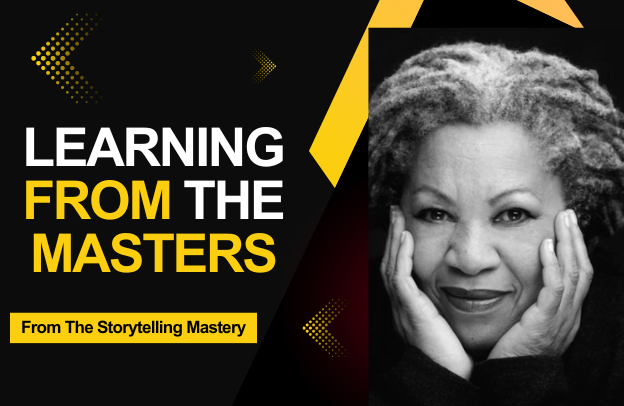How To Win Friends And Influence People by Dale Carnegie – Learning From The Masters

“How to Win Friends and Influence People,” is a self-improvement classic written by Dale Carnegie in 1936. Over the years the book has sold more than 30 million copies globally, making it one of the all-time best-selling books. Start by downloading the first chapter of The Storytelling Mastery.
Carnegie’s extensive experience in delivering business education courses in New York since 1912 laid the foundation for the invaluable insights shared in this enduring masterpiece.
The key message of “How to Win Friends and Influence People” is that building positive relationships, understanding others, and effectively communicating with empathy are essential skills for personal and professional success.
See the full video – How To Win Friends And Influence People by Dale Carnegie
Who is Dale Carnegie?
Born November 24, 1888, and died November 1, 1955, Dale Carnegie was an American self-help author and lecturer, best known for his influential work in the field of interpersonal skills and human relations.
Born in Maryville, Missouri, Carnegie gained prominence with his widely acclaimed book “How to Win Friends and Influence People,” published in 1936. The book, which has since become a classic in the self-help genre, offers practical advice on improving social and communication skills, building lasting relationships, and navigating the complexities of human interaction.
Carnegie’s teachings emphasize the importance of empathy, active listening, and the ability to understand and connect with others, making him a pioneer in the development of personal development literature.
Dale Carnegie’s impact extends beyond his written work; he also founded the Dale Carnegie Institute, a training and self-improvement organization that offers courses and workshops based on his principles.
Today, we are going to be examining 5 key lessons businesses can learn in his 1936 book, How to Win Friends and Influence People.
Lesson 1: The Power of a Genuine Smile
In “How to Win Friends and Influence People,” Dale Carnegie emphasizes the importance of a genuine smile. One real instance from the book involves Carnegie recounting a story about a chauffeur who always greeted his employer with a warm smile. This simple act created a positive atmosphere and established a strong bond between them.
Application in Business: In a business context, a genuine smile can go a long way in building rapport with clients, colleagues, and employees. Whether you are leading a meeting, negotiating a deal, or interacting with customers, a sincere smile can convey warmth and openness, making others more receptive to your message and fostering positive relationships.
Lesson 2: Show Genuine Interest in Others
Carnegie underscores the significance of showing genuine interest in others. One example from the book involves a dinner party where Carnegie engaged in a conversation with a botanist, letting him share his passion for his work. This simple act made the botanist feel valued and appreciated.
All these are well explained in my five-part Storytelling Mastery. Make sure you pick a copy for yourself on Amazon or my website, Obehiewanfoh.com.
Application in Business: In business storytelling, showing genuine interest in your audience, whether they are clients or team members, is essential. Take the time to understand their needs, concerns, and aspirations. This not only enhances your ability to tailor your message but also builds trust and connection, making your business interactions more effective.
Lesson 3: The Art of Listening
The book emphasizes the art of listening, showcasing an example where Carnegie met a man at a party who spoke at length about his fishing experiences. Although Carnegie had no interest in fishing, he listened attentively, and the man left the conversation feeling valued. As a podcaster, I can tell you that the Art of Listening is fundamentally important to me…
Application in Business: Active listening is crucial in business storytelling. By truly listening to your audience, whether it’s during a sales pitch, team meeting, or client consultation, you gain insights into their perspectives and needs. This enables you to craft narratives that resonate and address their specific concerns, creating a more compelling and impactful business story.
Lesson 4: Acknowledge Mistakes and Avoid Criticism
Carnegie highlights the importance of avoiding criticism and instead acknowledging one’s mistakes. In the book, he shares an anecdote about a supervisor who handled a potentially disastrous situation by admitting his error, which diffused tension and strengthened the working relationship.
Application in Business: In a business setting, admitting mistakes and avoiding criticism can contribute to a positive and constructive environment. When sharing business stories, be open about challenges and mistakes, focusing on the lessons learned and improvements made.
This vulnerability builds authenticity and trust, key elements in effective business storytelling.
Lesson 5: Appeal to Others’ Self-Interest
The book discusses the concept of appealing to others’ self-interest as a powerful motivator.
Carnegie recounts a story about a man who wanted his neighbors to keep their cows off his property. Instead of demanding compliance, he highlighted the benefits to the neighbors, framing it to protect their own cows from potential harm.
Application in Business: In business storytelling, appeal to the self-interest of your audience. When presenting ideas or seeking collaboration, emphasize how it aligns with their goals, interests, or success.
This approach makes your narrative more compelling and increases the likelihood of gaining support and cooperation in a business context.
The importance of interpersonal skills and human relations for entrepreneurs
Interpersonal skills and human relations play a pivotal role in the entrepreneurial world, serving as the backbone of successful business ventures.
Entrepreneurs with strong interpersonal skills can build and maintain valuable connections with clients, partners, and team members. Effective communication, active listening, and the ability to understand and adapt to different perspectives are crucial for negotiating deals, inspiring collaboration, and navigating the complex landscape of business relationships.
In the entrepreneurial realm, human relations take on added significance, influencing the creation of a positive and inclusive business culture.
Successful entrepreneurs understand the importance of fostering a diverse and inclusive environment, recognizing that different perspectives contribute to innovation and problem-solving.
A focus on human relations in the entrepreneurial journey ensures that a company not only attracts and retains top talent but also cultivates a supportive community that propels the business forward.
Conclusion
In conclusion, “How to Win Friends and Influence People” serves as a timeless guide to navigating the intricacies of human interactions.
Dale Carnegie’s insights, drawn from real-life examples and anecdotes, underscore the enduring importance of empathy, genuine interest in others, and effective communication in both personal and professional spheres.
The book encourages readers to embrace a mindset of understanding, kindness, and humility, recognizing that fostering positive relationships is not only a path to personal fulfillment but also a cornerstone of lasting success.
Carnegie’s principles, rooted in timeless wisdom, continue to resonate, offering valuable lessons for those seeking to enhance their social skills and make a positive impact in their relationships and endeavors.
To learn more, join our storytelling mastery for businesses at Academy.aclasses.org/storytellingmastery.





